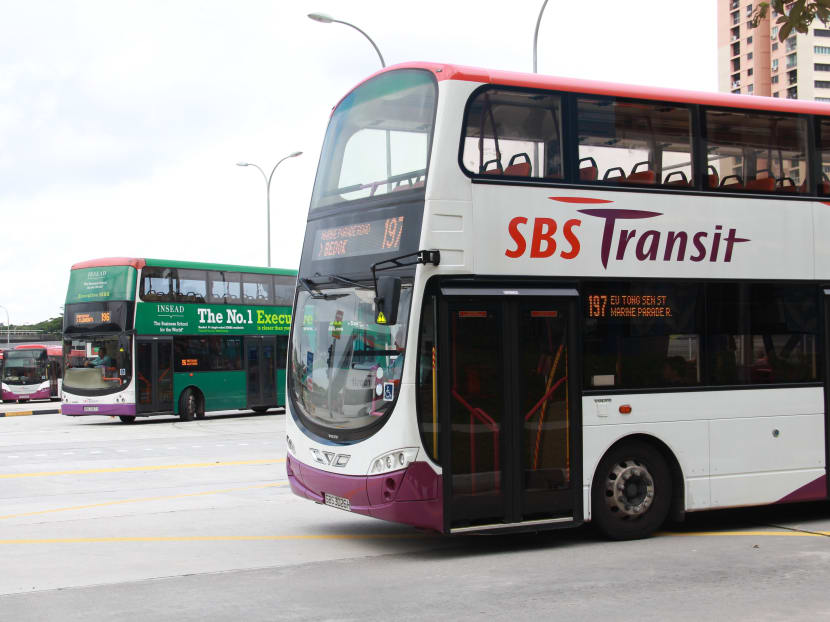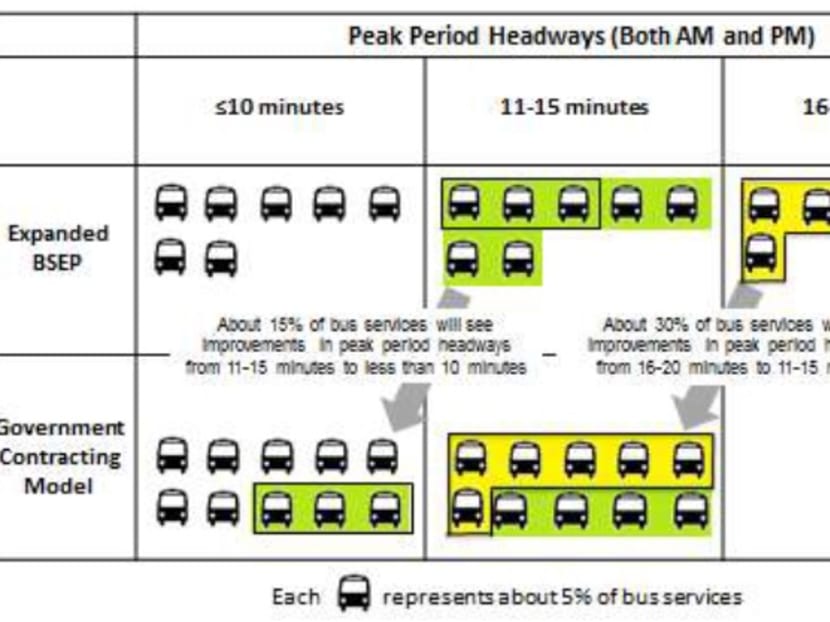Public bus industry revamp: Govt to own all bus operating assets, contract out bus services
SINGAPORE — In a drastic restructuring of the bus industry in Singapore, the Government today (May 21) announced that it will take over all bus operating assets and bus infrastructure and will contract out the bus services.


SINGAPORE — In a drastic restructuring of the bus industry in Singapore, the Government today (May 21) announced that it will take over all bus operating assets and bus infrastructure and will contract out the bus services.
This bus contracting model — to be implemented in phases over several years to ensure a smooth transition —is the Government’s latest bid to encourage greater competition in the public transport industry and bring the bus financing framework in line with that for rail.
The bus contracts will be offered through competitive tendering, with the Land Transport Authority (LTA) determining the bus services to be provided and the service standards. Bus operators will then bid for the right to operate these services. Under the Gross Cost model which the contracts are offered under, the Government will retain fare revenue and bus operators will be paid a fee to operate the services.
The LTA said this will lower the barriers of entry to the market, attract more bus operators, and facilitate the transition from an incumbent to a new operator, should the former not win the tender upon contract expiry.
Having studied the London and Australian bus contracting models over the past two years, the LTA noted that these models have run well and brought improvements to bus services.
Since last year, the LTA has experimented with competitive tendering on a small scale with the City Direct Services and Peak Period Short Services. “The next stage is to expand competitive tendering to cover public bus services on a larger scale,” the LTA said.
In a Facebook post, Transport Minister Lui Tuck Yew said that his first priority when he took over the post in 2011 was to expand bus capacity as quickly as possible.
This was done under the Bus Service Enhancement Programme (BSEP), he said, which was expanded to 1,000 buses operated by the current public transport operators.
Mr Lui said that Singapore is now ready to move beyond BSEP, and said that the new contracting model will enable the Government to “respond more speedily to changes in ridership patterns and commuter needs and provide a better service to commuters.”
He also mooted the possibility that foreign bus operators could enter Singapore’s market under the new contracting model.
Citing the example of London, he said that increased competition between bus operators “kept them on their toes” and led to better bus services.
Mr Lui said that the bus contracting will be implemented in phases over several years. “We will pay careful attention during implementation to minimize inconvenience to commuters,” he said.
He added: “Most importantly, we will see to it that the welfare and interests of bus workers are well taken care of.”
HOW THE BUS CONTRACTING MODEL WORKS
There will be 12 packages — with about 300 to 500 buses each — up for grabs.
As a start, three packages, making up about 20 per cent of routes, will be tendered out between this year and 2015. It will be open to incumbents as well as new local and foreign operators. The contract period will be five years, with a possible two-year extension on good performance.
The remaining 80 per cent of routes will be grouped into nine packages, and will be run by the incumbents on negotiated contracts for durations of about five years. After these contracts expire, more bus services will be gradually tendered out.
The tender for the first bus package will be launched in the second half of this year, and is expected to be implemented in the second half of 2016.
The existing Public Transport Tripartite Committee — chaired by Senior Minister of State for Transport Josephine Teo and comprising the LTA, Ministry of Manpower and the National Transport Workers’ Union — will look into transitional arrangements for bus captains, technicians and other employees.
The LTA said it will require operators to make employment offers to all workers servicing the tendered bus routes, on terms and conditions that are no worse-off than what the workers currently have.
Successfully implemented in cities such as London and Perth, the bus contracting model will enable the Government to make public bus services more responsive to changes in ridership and commuter needs, as well as inject more competition into the industry, thus raising service levels for commuters over time, said the LTA.
The LTA added that higher service standards will also be enforced, on top of the expanded Bus Service Enhancement Programme standards.






